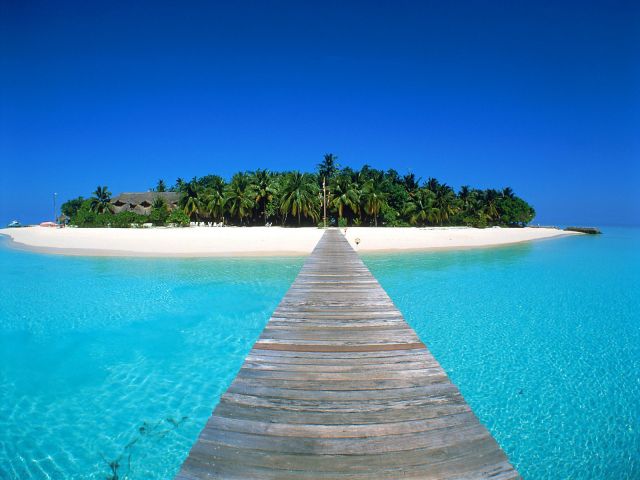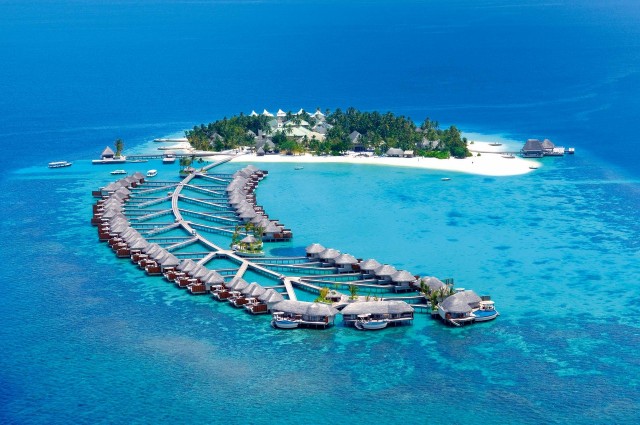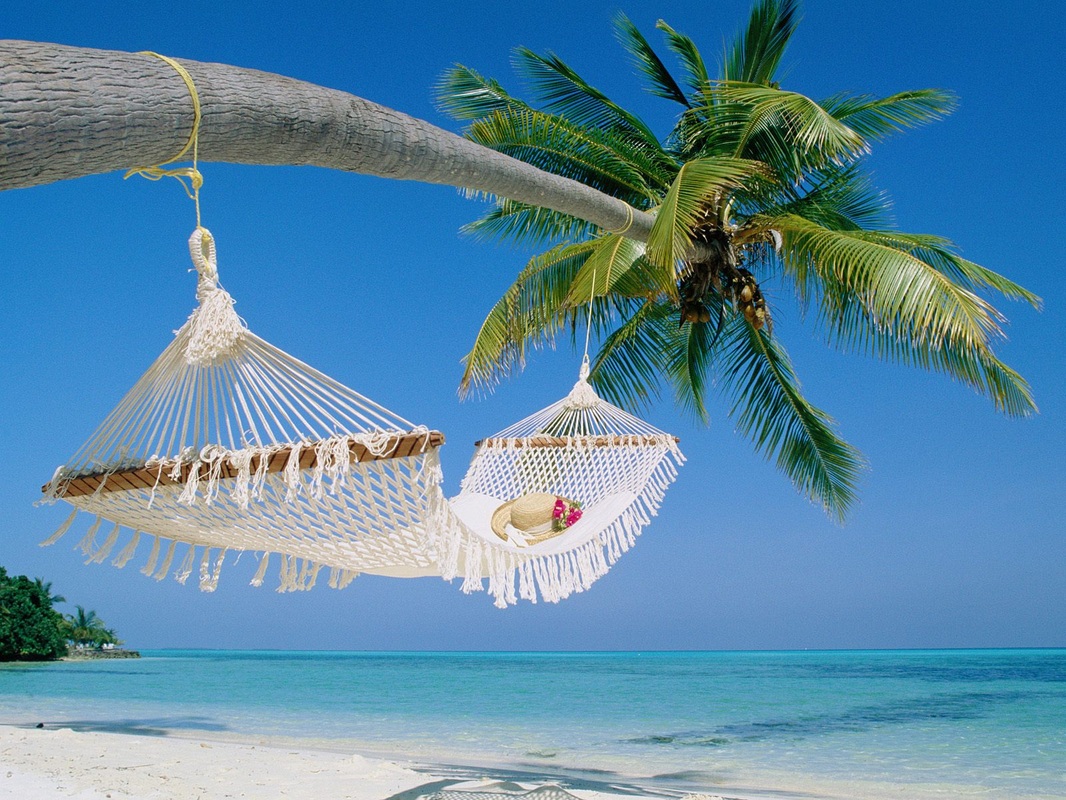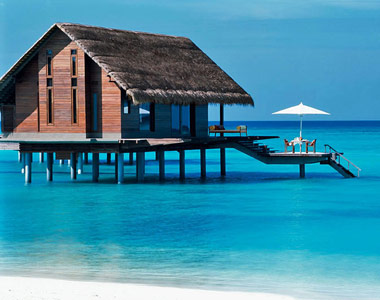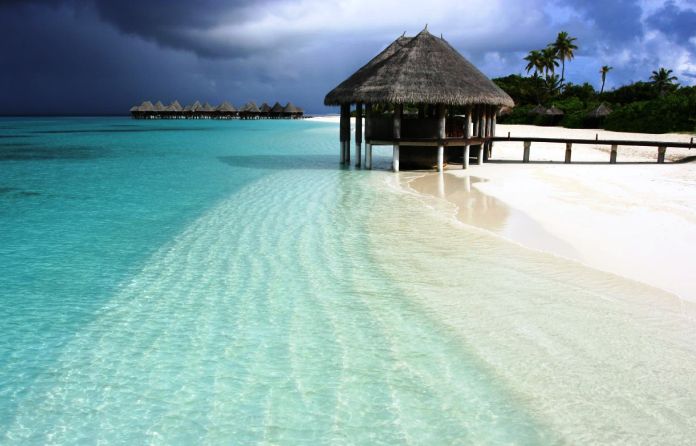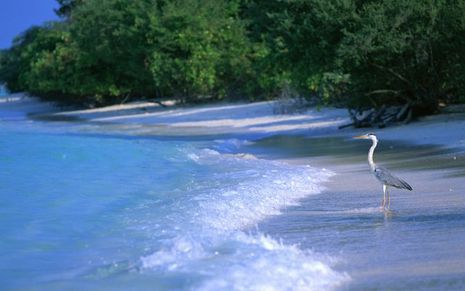PeoplePeople in Maldives have a reputation for being generally shy yet polite. There are barely over 200,000 people living in this small country. People in Maldives are united by their common language, Dhivehi, and their religion, Islam. They are firm believers in Islamic faith and have deep respect for the practices of the religion. The gravity with which Maldivians approach Islam is reflected in their lifestyles, festivities, and traditions.
Maldivians focus a great deal of attention on the importance of family. Because of the strong family ties among Maldivians, obligations and responsibilities within the family are always respected and followed. Maldivians also show respect for visitors to the country in their hospitality customs. They always makes an effort to reserve their best services for tourists. Despite the strength of their traditional practices and beliefs, most Maldivians have been able to adjust the advances in technology, albeit very slowly. Their everyday modes of life are a blend of modernity and tradition. Maldivians are hard working, but they take things a little slower than foreign visitors might expect. The pace of life that they follow is calmer and less hurried than in metropolis. |
Maldives is a country of sand and sea. This beautiful place is famous for its many lagoons, which come in a variety of depths and shades and whose varieties make the oceans all the more breathtaking. Maldives is considered one of the most sought-after destinations in all of Asia. For many, Maldives has more significance than the typical vacation site. It can be a paradise: the many tourists who have become repeat visitors to this awe-inspiring archipelago are a testament to that. One factor that helps make this country a tourist favorite is that there are no visa requirements—absolutely anyone is free to visit Maldives. Maldives has been through many difficult disasters in the past few years, including the unforgettably devastating tsunami of 2004. Despite these setbacks, Maldives pushed forward and has continued to grow economically. Tourism has been one of the major catalysts of progress. Today, Maldives is once again beautiful not only for its locals, but for tourists as well. |
Geography
The archipelago of Maldives is located right on the equator, which explains its beautiful tropical climate. There are a total of 1,190 islands, though each differs little from the next in terms of culture and language. In fact, only about one sixth of the whole archipelago is inhabited by Maldivians. Life in Maldives generally revolves around fishing, handicrafts and coconut cultivation. Maldivians take advantage of the famous tourist attractions and natural beauty that their country is endowed with.
NightlifeMaldives offers a thrilling late night scene for tourists and locals alike. Clubs, pubs, restaurants and discos are fun and visible components of nightlife. Drinks, local foods, and great music are available at these hot spots. Whether spending time with family or friends, Maldives offers options that cater to a wide variety of tastes, so that regardless of your personal preferences, there are entertainment options for everyone to enjoy. Beaches, a mainstay of daytime activities, can also be a wonderful nighttime destination.
|
Famous AttractionTourists flock to Maldives because of its idyllic tropical climate and palm beaches. Beaches offer a wide array of activities and water sports such as snorkeling, scuba diving, surfing, parasailing and underwater coral watching. Maldives is also famous for the beautiful mosques such as the Mulee Aage Palace, Hukuru Miskiiy and the Grand Friday Mosque.
Beaches are the pride of most Maldivians. The country is dotted with pristine beaches that are some of the hottest in the entire world. Visiting a topical country such as Maldives is perfect for tourists who want to spend some time with sun and water. Male, the capital city of Maldives, is one of the best destinations in Maldives. Not only is it the most developed and civilized place in Maldives in terms of economy and tourism, but there are also several types of traditional handicrafts that can be bought there. These are perfect for tourists who want a memento of their visit to Maldives. Male even has an artificial beach located the city because, despite its other attractions, it does not have natural beaches. However, even the artificial beach has its unique charms, which can be found nowhere else in Maldvies. There are also submarines that allow tourists to participate in underwater exploration without getting wet. |
CultureMaldives is rich in heritage, history, music, arts and theatre, all of which are important aspects of contemporary Maldivian culture. It is a multicultural society, one which has been inspired and influenced by both Asian and Hindi cultures. The primary religion practiced by Maldivians is Islam, and no other religion is allowed out of respect to the peoples’ highly cherished ancient beliefs. In particular, Maldivians take great pride in family values. Difficult circumstances always involve enlisting the help of family members, who may be intimate but can even be distant relatives. The family is considered an obligation and responsibility, which is why most Maldivians contribute to taking care of children and other family members. Strangely enough, however, Maldives has one of the highest divorce rates in Southeast Asian, and one of the highest divorce rates by Islamic standards.
|
CuisineTypical Maldivian cuisine is composed of local dishes that combine Asian and European elements. The main ingredients are fish and other seafoods such as shrimp, though vegetables are used as fillers for every meal. Maldivians are also fond of tropical fruits such as pineapples, bananas, coconuts, mangoes, oranges, limes and avocado. Flavors with bursts of spice are a special mainstay of Maldivian cuisine.
A traditional meal might be composed of tuna served with roshi and other ingredeints such as onion, raw chili, salt, lemon juice, and scraped coconuts. Spices might include ginger, lemon grass and garlic. Maldivians also enjoy a serving of rice to complete every meal. |
Qunar

